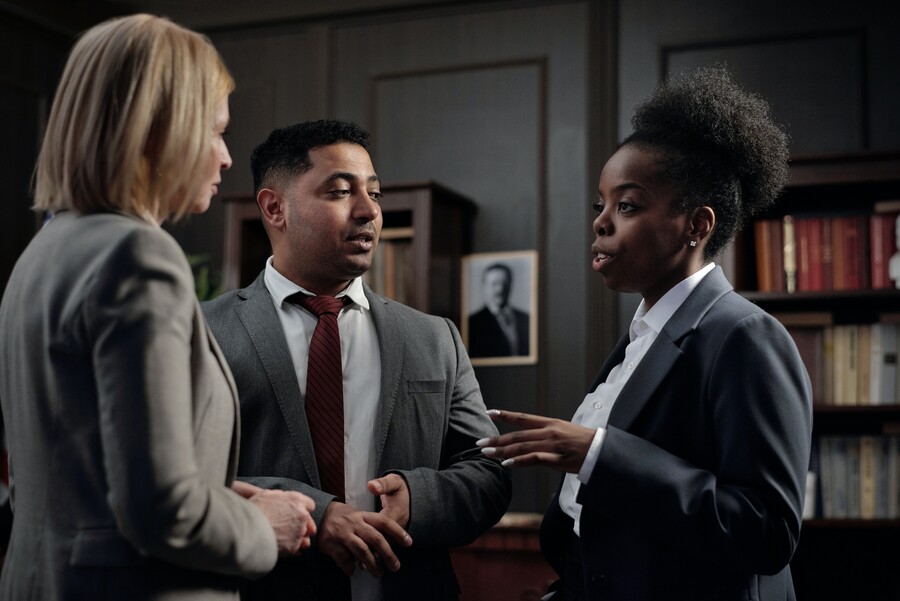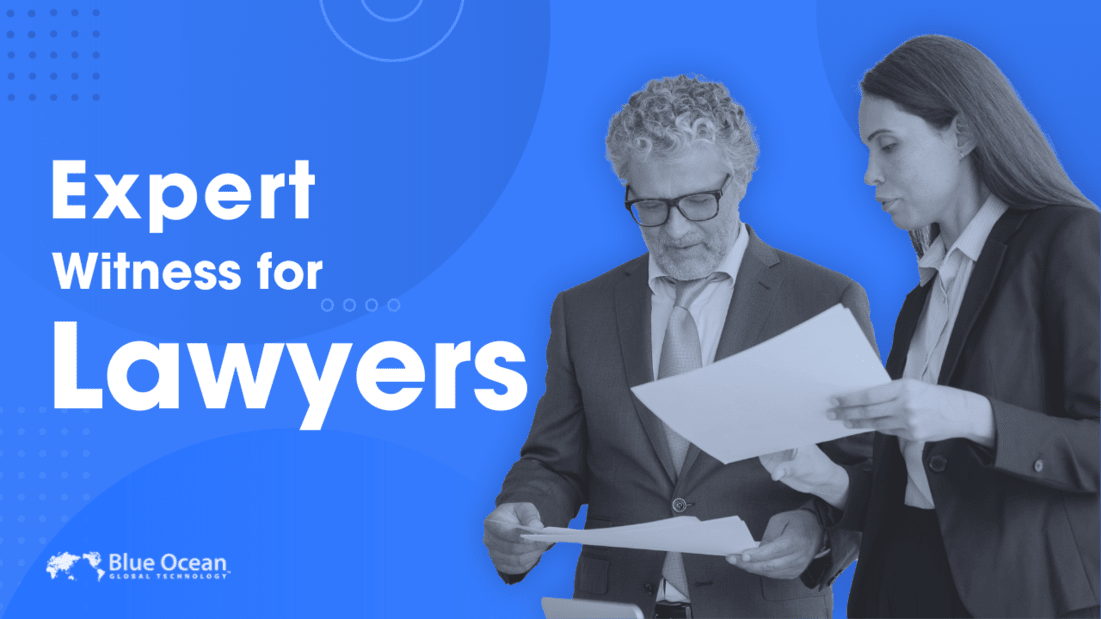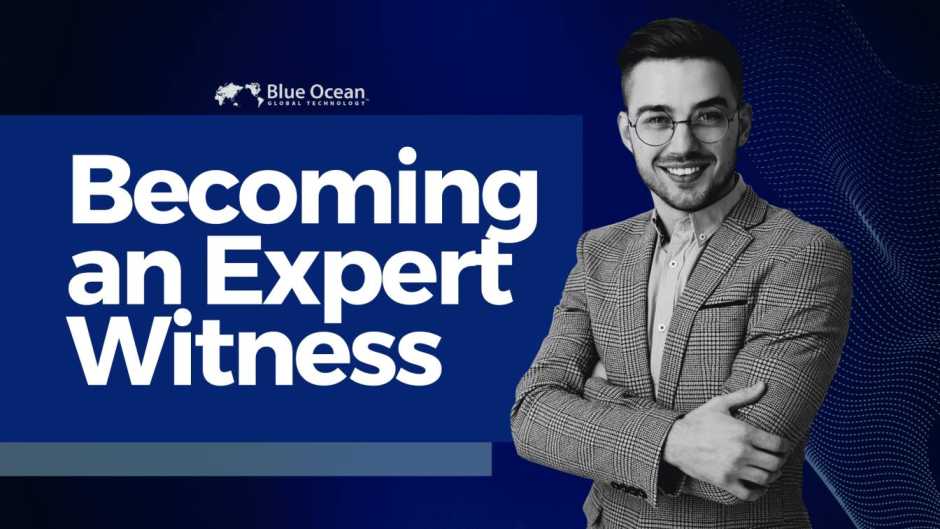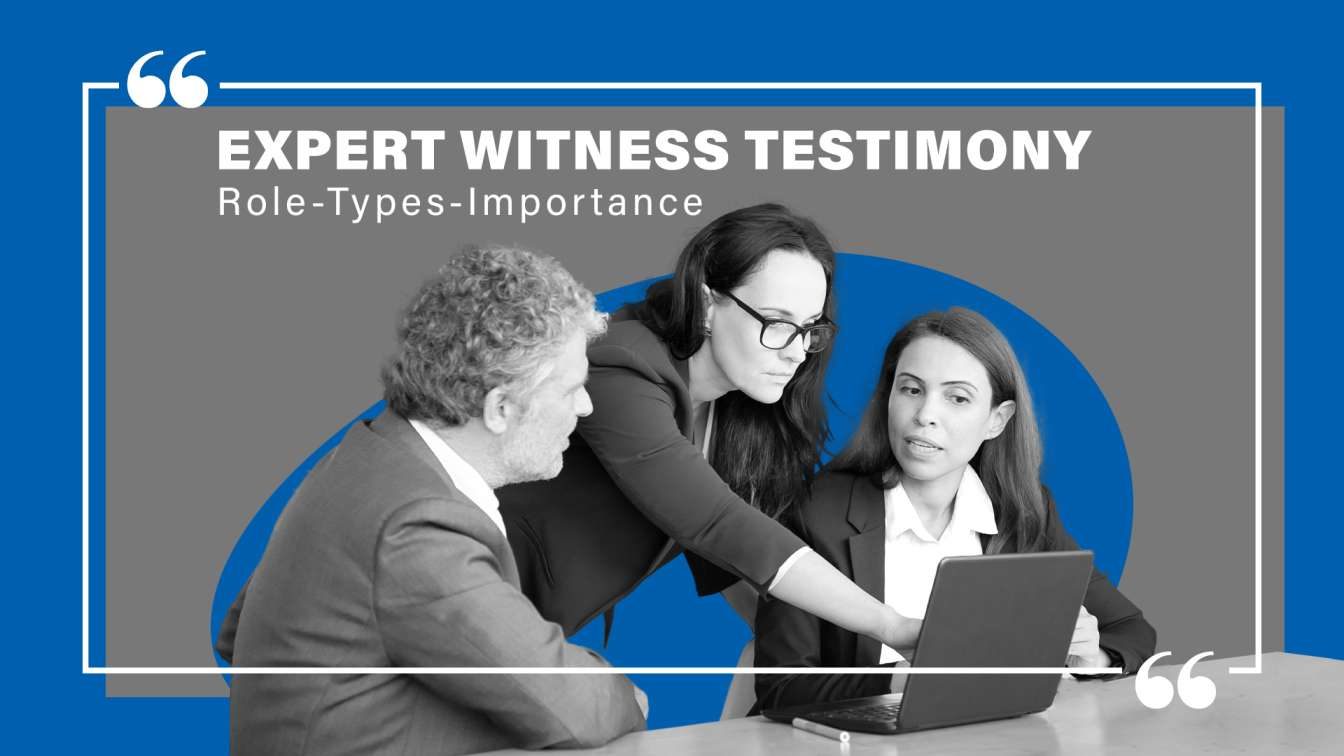The Indispensable Role of Legal Expert Witnesses
Legal expert witnesses are needed to provide services as expert witnesses, bridging the gap between legal arguments and technical facts. They provide not only courtroom expert witness testimony but also prepare expert witness reports that are foundational in establishing the factual basis of a case.
Why Are Expert Witnesses Essential for Lawyers?
Expert witnesses are critical for lawyers because they provide specialized knowledge that strengthens legal arguments. In cases involving financial analysis, tax law, or securities litigation, their ability to present complex information clearly is invaluable. Expert witness testimony allows legal teams to navigate intricate issues, helping judges and juries understand technical concepts.
How does Legal Consulting of Lawyers Differ from Expert Witnesses Support?
Legal consulting generally focuses on providing strategic advice to lawyers—helping them frame their arguments, manage case details, and navigate procedural issues. However, legal consultants typically don’t provide expert witness testimony or offer specialized insights into technical fields like real estate finance or financial fraud. On the other hand, expert witness services directly contribute to the case by offering in-depth analysis and presenting expert testimony in court.
Qualifying as an Expert Witness: Daubert and Frye Standards
To qualify as an expert witness, the individual must meet certain legal standards, such as Daubert or Frye. The Daubert standard is the assessment of the scientific validity and relevance of the testimony; it looks at things like peer review and error rates. The Frye standard focuses on whether the methods are generally accepted within the relevant scientific community.
 Source: Freepick
Source: Freepick
Type of Expert Witness Services for Lawyers
Expert witnesses provide specialized knowledge and opinions in a wide range of legal areas. Their role is to help clarify complex issues for the court and guide lawyers in their legal strategies. Here are the main types of expert witness services:
Intellectual Property Expert Witness:
An expert in the field of intellectual property law who provides specialized knowledge and testimony in legal cases related to patents, copyrights, trademarks, and other intellectual property disputes.
Digital Forensics and Cybersecurity Expert Witness:
A professional with expertise in digital forensics and cybersecurity who assists in legal cases by analyzing and presenting evidence related to digital crimes, data breaches, cyber-attacks, and computer-related incidents.
SEO (Search Engine Optimization) Expert Witness:
An expert in search engine optimization who provides insights and testimony in legal matters involving website rankings, online visibility, and optimization practices for search engines.
Social Media Expert Witness:
A specialist in social media platforms and practices who offers testimony and expertise in legal cases concerning social media content, usage, data, privacy, and related issues.
Financial and Accounting Expert Witnesses
These types of expert witnesses provide their testimony in cases of fraud, disputes, division, etc. They play a pivotal role in analyzing complex financial matters. Attorneys depend on their experience to satisfy the Daubert standard or Frye standard for admissibility of expert testimony. Expert witness depositions can also include financial experts to ensure that the details of their analysis are well represented in court.
Engineering and Accident Reconstruction Experts
These types of witnesses provide special knowledge about the technicalities, in cases of construction defects, product liability, etc. These legal expert witnesses help analyze and explain the technical and structural nuances to explain how an incident occurred. Their expert witness testimony can be important to understand the difficult engineering principles and in providing litigation support.
Medical Expert Witnesses
These expert witness services include reviewing medical records, rendering a diagnosis, and offering expert opinions on the standard of care. Medical experts are very important in helping the court understand complex medical issues. Their expert witness deposition and expert witness report are vital for the litigation process.
Enhance Your Case’s Credibility With Our Expert Witness Testimony
Request a quote for our services today.
Finding the Right Expert Witness for Your Case
Finding the correct expert witness is highly important for building a strong case. Lawyers may follow a series of steps to find the right expert, who can provide credible expert testimony. Some of the steps include:
Evaluating Expert Qualifications and Experience
The first step in doing a background check is to look if the expert witness qualifications match with the profile of their expertise. A well-qualified expert witness should also have experience providing expert witness testimony in court and be familiar with both the Daubert standard and Frye standard.
Leveraging Referrals from Colleagues and Networks
Finding an expert witness may also involve seeking referrals from colleagues and networks. Legal consulting professionals may also have recommendations or preferred experts they rely on for specific types of cases.
Utilizing Expert Witness Directories and Databases
Another excellent source to find expert witnesses is through search base directories. SEAK or Expertbase are some examples that can be used to check listings of professionals field wise.
Exploring Internet Resources and Court Records
Lawyers can search online platforms or court records for expert witness reports, transcripts, and publications to find potential candidates. Reviewing past testimony by experts in similar cases gives lawyers the opportunity to assess the credibility and expertise of an expert.
Working with Expert Witness Placement Firms
Expert witness placement firms focus on connecting attorneys with qualified legal expert witnesses. They maintain a database of professionals across various fields and can connect lawyers with the perfect expert, given the details of a case. They also help with contract negotiation and might be able to advise on things like expert witness fees.
Reviewing Expert Reports, Transcripts, and Publications
Lawyers should also have a look through an expert’s prior work before retaining them. In doing so, one gets to examine past expert witness reports, deposition transcripts, or any other published material by the same expert.
 Source: Freepik
Source: Freepik
Steps Expert Witnesses Follow to Gather Evidence in Lawsuits
Expert witnesses gather evidence in a lawsuit using various methods and approaches that are specific to their area of expertise. The process typically involves the following steps:
Case Review and Analysis
This involves a very meticulous review and analysis of a case. The expert witnesses review all the pertinent documents of a case. This includes legal complaints, depositions, previous expert reports, and any other types of evidence presented. They help determine the overall scope of a case to understand the issues at hand and help determine what types of evidence or specialized knowledge they can provide.
Gathering and Analyzing Documents and Data
The next step that expert witnesses follow is to collect relevant information to support their argument.This can include contracts, medical records, financial statements, engineering reports, or accident data, depending on the case type.
Conducting Scientific Experiments or Tests
In some special cases, experts may conduct experiments to substantiate their findings. For example: an engineering expert may recreate a car crash using dummy models to determine the causation. This helps to add objectivity in the case.
Conducting Interviews and Depositions
In addition to these sources, expert witnesses may also gather information by conducting interviews and depositions of the parties involved in the case, including witnesses, plaintiffs, defendants, or any other party with first-hand information about the case. First-hand knowledge can provide more views and information that may not be available from documents.
Reviewing Relevant Scientific and Technical Literature
To refine the expert witness report, they may use existing literature to help support the existing argument. For instance, a medical expert might consult medical journals or studies to back up their opinion. This may make their search more reliable and valid.
Expert Consultations
In order to further augment their base, expert witnesses may seek consultations from senior professionals in their field. This would strengthen their analysis and ensure the credibility of their testimony.
Formulation & Documentation of Expert Opinion
The expert witness forms the expert opinion after the gathering and analyzing of the evidence. This is based on data, documents, and tests reviewed, besides interviews or consultations held. The expert then documents their opinion in a comprehensive expert witness report, outlining their methodology, findings, and conclusions.
Preparing for Trial Testimony and Cross-Examination
Once all things are documented in a report, the next step is to rehearse their case. The best way to do this is by reiterating concepts, having clear conceptual understanding, and preparing anticipated answers to questions from counsel.
Providing Expert Testimony in Court
Lastly, the expert witness testifies in court by rendering their findings and opinions before the judge or jury. In giving testimony, the expert presents the evidence they have gathered, how they analyzed it, and how that supports their conclusions. By doing this they provide litigation support.
Ethical Considerations for Lawyers Who Engage Experts
When lawyers engage expert witnesses for testimony, they ought to maintain fairness and transparency throughout the process. These practices not only maintain credibility but also safeguard the fairness of the legal proceedings. Expert witness ethics are crucial in providing litigation support.
Maintaining Fairness to Opposing Counsel and Parties (Rule 3.4):
Rule 3.4 prevents lawyers from frustrating the course of justice through denying access to evidence, tampering with or altering evidence, or encouraging others to do so. Lawyers should not make frivolous discovery requests, fail to comply with obligations imposed by the tribunal in the conduct of the litigation, or present irrelevant or unsupported material in trial. It also prohibits them from offering personal opinions as to a case or inducing others to withhold relevant information, except where it does not injure their interest.
Ensuring Expert Objectivity and Impartiality
It is one of the core ethical duties of lawyers when engaging an expert witness to ensure objectivity and impartiality on the part of the expert. Expert witnesses must base their testimony solely on the facts, data, and scientific analysis relevant to the case—not on the lawyer’s desired outcome.
Transparency and Disclosure of Expert Witness Roles
Lawyers must clearly state out the extent of involvement of expert witnesses in the case. By doing this they would minimise any potential for conflict of interest.
Disclosure of Compensation and Conflicts
Ethically, lawyers are compelled to disclose any compensation that they would bear to an expert witness. This ensures that the witness remains impartial and no financial motives are attached to testifying.
Disclosure of Adverse Authority
If the lawyer becomes aware of adverse authority or contrary opinions that may impact the expert’s opinion, they have an ethical duty to disclose such information to the expert and to opposing counsel.
Ensuring Prompt Payment of Expert Witness Fees
It is imperative to provide the expert witness fees in a timely manner. Delayed or unfair remuneration may damage the relationship between the lawyer and the witness. This may impact the willingness of the expert to continue offering services or testify in future cases.
Protecting Attorney-Client Privilege and Confidentiality
It is the lawyer’s job to ensure that any financial expert witness they hire is well versed in protecting the confidences of any sensitive information associated with the matter. This specifically refers to all financial documents, plans, and client communications provided to the expert. Experts should have confidentiality agreements and should ensure that they do not discuss anything that will void attorney-client privilege inadvertently.
Expert Witness Lawyers: FAQs
-
What is the role of an expert witness in a trial?
An expert witness, by virtue of his specialized knowledge in a given subject matter, assists the court in understanding complex or technical issues that arise during the trial. He often does it through submitting his report(s) incorporating his opinion and findings in a case.
-
How to write an expert witness report for court?
In an expert witness report, expert opinions and conclusions shall be presented in a clear and logical manner, ensuring they are well-supported by the evidence that has been reviewed. It is equally important to acknowledge any limitations in the analysis that might affect the accuracy of the experts’ opinions. Properly citing and referencing any relevant study or research adds credibility to the report.
-
How much does an expert witness get paid?
The payment for an expert witness can vary widely depending on several factors, including the complexity of the case, the expertise of the witness, the location of the trial, and the time commitment required. Hourly rates for expert witnesses can range from a few hundred dollars to several thousand dollars per hour, depending on the field of expertise and the reputation of the witness Some highly specialized experts with extensive experience may command even higher rates.
-
Can a Lawyer act as an Expert Witness?
Yes, a lawyer can act as an expert witness if they have specialized and relevant knowledge in that particular area relevant to the case. For example, a lawyer with expertise in aviation law or securities law may testify as an expert witness on those subjects.
-
What is the role of an Expert Witness in Arbitration?
The role of an expert witness in arbitration is to assist in the resolution of disputes by providing impartial, credible, and informed opinions that help clarify complex matters, ensuring fair and equitable decision-making.
-
What is Expert Testimony in Evidence Law?
Expert testimony in evidence law refers to the presentation of opinions, interpretations, or conclusions by individuals who possess specialized knowledge, skills, or expertise in a particular field. In legal proceedings, expert witnesses are called upon to provide their professional opinions on technical, scientific, or specialized matters that are beyond the understanding of the average person, judge, or jury.
The admissibility of expert testimony is subject to various rules and standards, such as the Daubert standard in the United States, which ensures that the testimony is relevant, reliable, and based on sound scientific principles. The goal is to prevent the court from being presented with unreliable or unscientific opinions that could potentially mislead the trier of fact.
-
What do Lawyers look for in an Expert Witness?
Typically, lawyers expect the following qualities in an expert:
Professional Credibility and Reputation
Courtroom Experience and Communication Skills
Objectivity and Impartiality
Ability to Gather and Analyze Evidence
Don’t Navigate the Complexities of Your Case Alone
Reach out to us for a free case assessment and expert witness guidance to ensure success.












